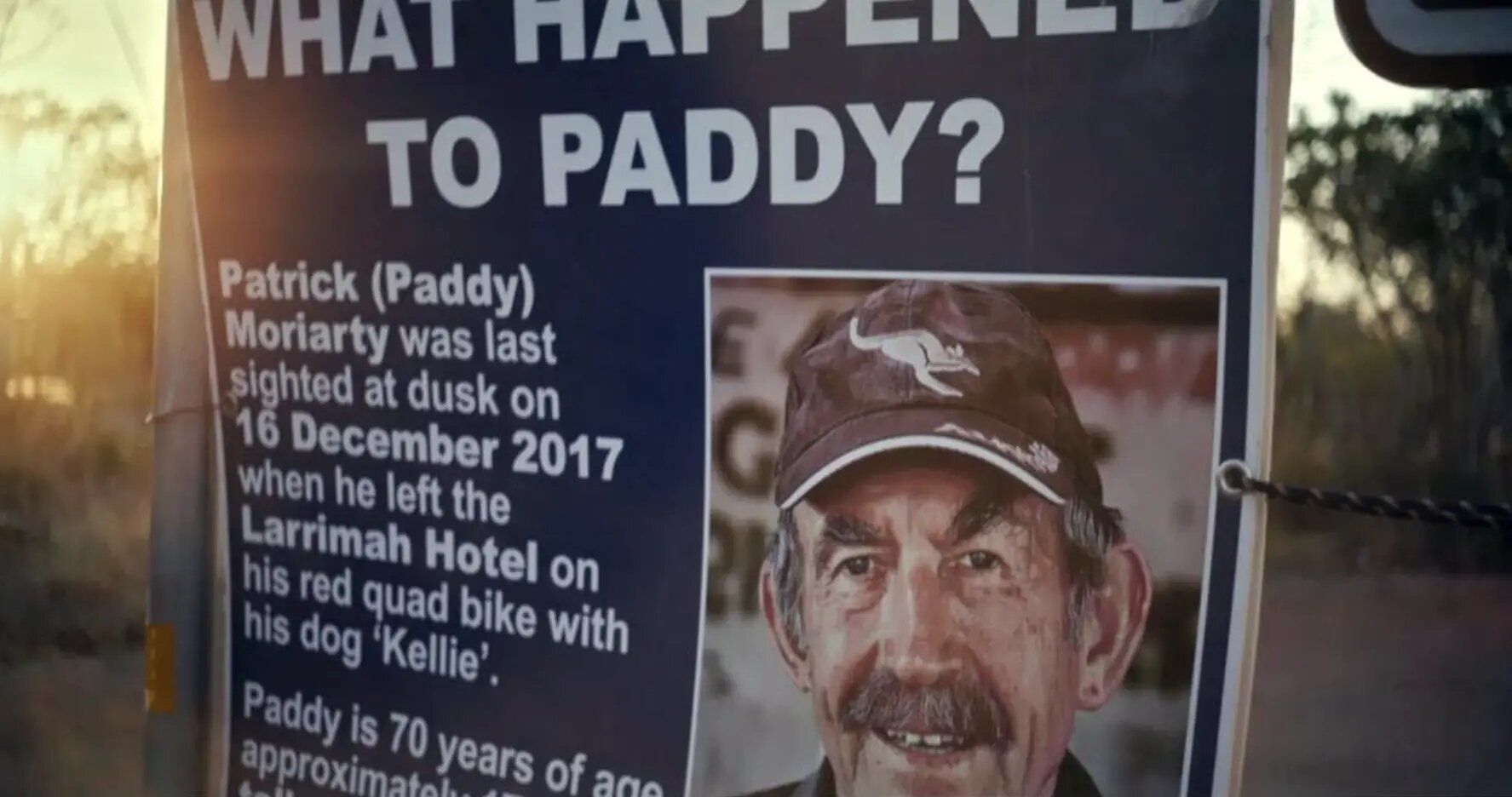Last Stop Larrimah is the rare true-crime doc in which not a single tear is shed throughout its substantial two-hour runtime. That’s because the assumed-dead 70-year-old around whom it's centered had a lot of enemies: nearly all of his neighbors in the titular tiny Outback outpost he lived in, in fact. As the doc reveals, Larrimah — population: 10 (11 before Paddy Moriarty disappeared in 2017) — was a pressure cooker of big personalities roiling with animosity.
Given the town’s tiny population, the film has the uncommon privilege of being able to explore the potential motives of every possible suspect — and it does, diving into vicious feuds over meat pies, hungry pet crocodiles, and the million grievances Paddy’s neighbors apparently harbored. But, though it presents all motives as equally plausible, it turns out one explanation is much more likely than the rest. That’s the problem here: like so many other true-crime docs, by the end, you can’t help but feel that the journey this takes is ultimately exploitative. Though it’s an entertaining portrait of eccentric Aussie characters, the film is much too devoted to doing just that — entertaining — at the expense of all its participants (including the unremarkable local police, for some reason), and so its late pivot into emotional profundity feels markedly insincere.
Genre: Documentary
Director: Thomas Tancred



